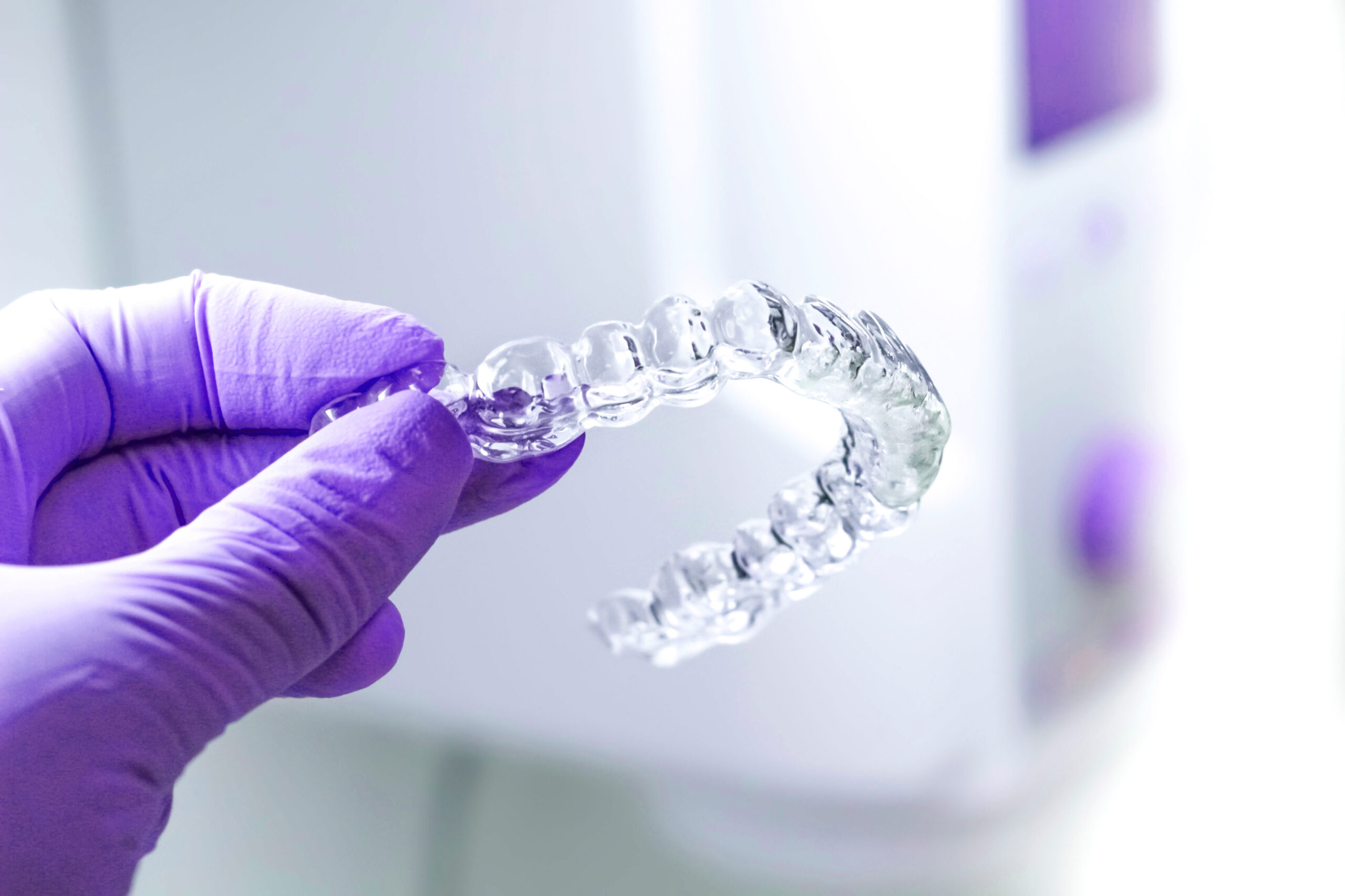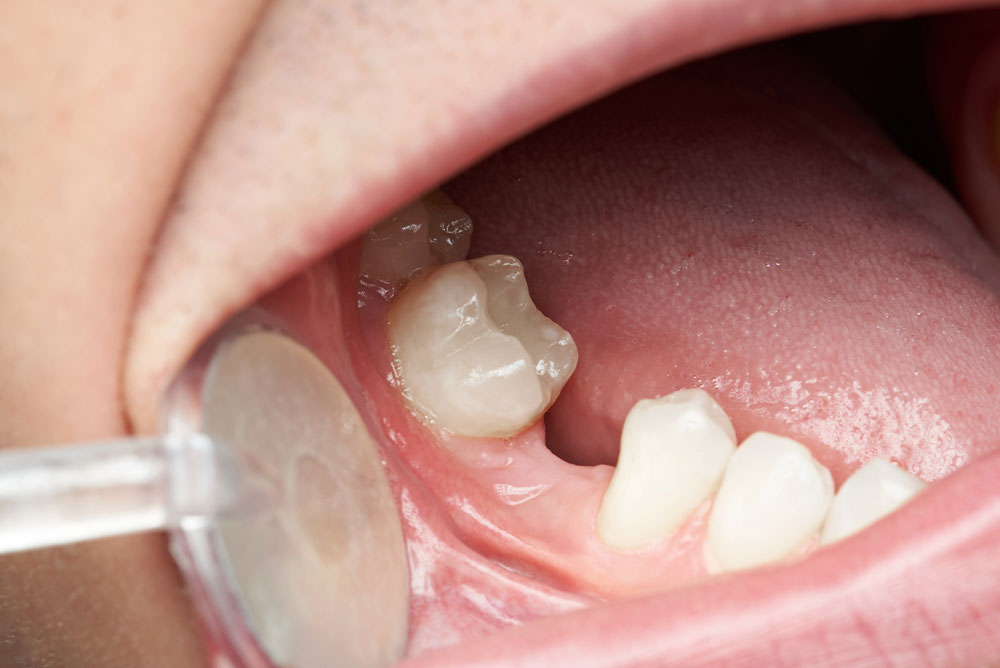Dentistry
Dental implants and bridges are two of the most common treatments provided to replace missing teeth. As with most of our treatments, there are a few reasons why you’d choose to opt for one over the other, so take in our expert advice and discover the benefits of dental implant treatments versus bridges.
Why You MUST Replace Missing Teeth
Missing teeth are often unsightly, uncomfortable and unhealthy. We know from experience that the longer a patient waits to replace a missing tooth, the higher risk they are at developing a range of unwanted conditions that are detrimental to oral health and hygiene.
Gum disease doesn’t sound that scary, but is a common reason for developing other conditions such as alzhiemers , diabetes, cancers – and puts you at 2-3 times more risk of heart attacks, strokes and other cardiovascular issues.
If you were previously unaware of the threats that gum disease can pose – replacing your missing teeth for health reasons should be higher priority than an impared self-esteem.
At Smile More Solihull, we have treated numerous patients who were in need of solutions for their missing teeth. One such patient, Skye Dodd, shared her incredible experience with us, stating:
“I had an incredible experience at Smile More Solihull for my missing teeth treatment. The dentist was not only highly skilled but also made me feel at ease during every visit. The entire team was professional, and the personalized care I received was second to none. The results exceeded my expectations—my smile looks fantastic, and I feel so much more confident. If you’re in Solihull and need dental work, I can’t recommend Smile More enough. They truly deliver five-star service!”
Main Options To Replacing Missing Teeth
If you’re looking to replace missing teeth with one of the few procedures available, it’s not always easy to weigh up the options without knowing the requirements or how to distinguish the better option for you.
While there are other ways to replace missing teeth, such as dentures or crowns , this guide will help you understand the concept of our two most popular options – Implants and bridges.
But first, let’s briefly define the two options!
Definition of Dental Bridges vs Implant
A bridge, suitably named, acts as a bridge from one tooth to another while filling the space of the missing tooth. An implant on the other hand actually replaces the root of the missing tooth, and is set deeper into the gum, providing a stronger more permanent fixture to attach crowns or other pontics.
Dental Implants vs Bridges: What’s the Procedure?
The two procedures are obviously very different from one another, however as you’ll soon discover, there are some occasions where the two actually crossover.
Dental Implant Procedure
As the implant treatment actually replaces the root (not just the gap where the missing tooth was), it requires a screw to be installed neatly through the gum and into the jawbone in place of the root, allowing us to attach crowns or in the scenario where all teeth are missing, implant supported dentures.
Dental Bridge Procedure
The dental bridge procedure firstly requires the two teeth adjacent to the gap to be prepared (filed down) so the two ends of the bridge can be fitted on top. The metal or porcelain replacement tooth is held in place between the two, covering the gap, enabled by bridging from one to the other.
Implant Supported Bridge Procedure
In the case where there’s multiple teeth missing in a row, a single bridge won’t suffice, while fitting implants for all of them may be out of your budget. On this occasion you’d be able to opt for what’s known as an implant supported bridge, which compromises both options, and provides the benefits of each.
Dental Bridges: Pros & Cons
| Pros | Cons |
| Natural-feeling and requires only standard tooth maintenance. You can still eat and drink with dental bridges fitted | Risk of decaying the adjacent teeth (that hold the bridge) if prepared or fitted wrong |
| Can be matched aesthetically to the shape and colour of your existing teeth, and doesn’t affect speech or sound | Risk of damaging adjacent teeth if they’re not strong enough to start with – meaning implants may be required after bridge collapse |
| Dental bridges are less expensive than implants | Long lasting, but only around half the life length of implants |
| Dental bridges help to strengthen the prepared teeth | Unsuitable for young teeth or baby teeth and is likely to result in root therapy |
| Chewing and eating is easier because they are fixed and can’t come out like a partial denture would | 1-3% risk of inflamed nerve if the abutment teeth are poorly prepared |
| Controls risk of gradual shifts in existing teeth that may be caused by the gap | Tooth sensitivity may last a few weeks after the procedure |
Dental Implants: Pros & Cons
| Pros | Cons |
| Strong, natural-feeling and requires only standard tooth maintenance. | More likely to get an infection compared to a bridge but, risk is reduced if sufficient aftercare is maintained. |
| Implants can be matched aesthetically to the shape and colour of your existing teeth. | More expensive due to the surgical nature of having implants installed. |
| On average last up to 40 years. | May not be covered by standard health insurance as its costly, and may not be the only option. |
| You can still eat and drink as normal with dental implants fitted, and they won’t affect speech or sound. | Tiny movements in the healing process can occur if the patient is too forceful while eating. This would result in a loose fitting, and would in all circumstances require surgery again. |
| Controls risk of gradual shifts in existing teeth that may be caused by the gap. | You may not be able to have implants, or could be at higher risk of infection due to existing conditions or lifestyle choices. |
Smile More Solihull has helped many patients achieve life-changing results with dental implants. One such example is Philipp Adler, who was overjoyed with his treatment:
“I can’t recommend Smile More Solihull enough! I went there to get help with my missing teeth, and the whole experience was fantastic. The dentists were so friendly and really put me at ease. They explained everything clearly and made sure I was comfortable throughout. The results are amazing – I can’t stop smiling! If you’re dealing with missing teeth, Smile More Solihull is the place to go. They truly care about their patients and do incredible work. Thank you for giving me my smile back!”
Read more reviews on Cylex
Why Shouldn’t I Get Implants?
There are certain occasions where treatment failure is at more risk due to your lifestyle or pre-existing conditions, and in which case, a bridge would be advised instead. Considering the higher price tag, and the higher risk of infection, you should only really get implants if it’s deemed safe and reliable.
If You Smoke You Shouldn’t Get Implants
This is because smoking cuts off the blood supply to gum tissue and would impair the healing of the wound. With bridges on the other hand, there is no wound that requires healing, and therefore is the safer, more sensible option. Around 20% of implants for smokers end up failing, and alcohol is also likely to hinder the healing process in excessive amounts (5 units a day).
If You Have Diabetes You Should Not Get Implants
Due to the potentially poorer circulation of blood in diabetes patients, the slower healing wound is more prone to getting infected and failing.
Get Bridges If You Suffer From Periodontal Disease (Gum Disease)
Infected gums are 100% unsuitable for patients wanting dental implants. Due to the pre-existing bacteria in the gums, it’s already a breeding ground for infection. If you suffer from gum disease you should wait until you’ve eradicated the disease or get bridges instead – or you would almost definitely get peri-implantitis.
If You Take Certain Medications Be Cautious With Implants
It’s been reported that taking a certain number / type of medications can increase the risk of implant failure. These include bisphosphonates (commonly used to slow the thinning of bones) which may interfere with the healing of the jaw bone, PPIs (which are used commonly to control heartburn), SSRIs to control serotonin levels (for patients with anxiety or depression).
Dental Implants vs Bridges: What’s The Best Way To Replace Missing Teeth?
As you may have discovered, there’s no better option, however it’s certainly worth deciding which is the most suitable option based on your personal requirements. While implants are longer lasting, the procedure can be higher risk, especially for the reasons highlighted in this blog post! However, if you can afford the more expensive option without posing any risk, you may have more peace of mind in decades to come than if you opted for bridges.
Thanks for reading – do not hesitate to get in touch for more advice on the matter or to book a consultation in our private dental practice in Solihull.






